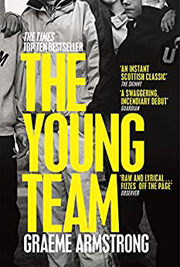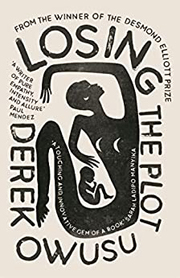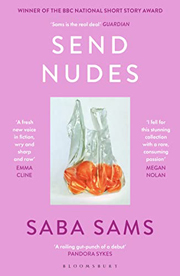I bet you have heard of Ian McEwan, Salman Rushdie and Kazuo Ishiguro. How about Iain Banks, Ben Okri, Kamila Shamsie, Zadie Smith and Jeanette Winterson? Those sentences read like a roll call of literary greats from the last few decades and several of them feature on different pages of this website.
Over the years, these writers have all been selected by Granta, in a list published every decade since 1983, as among the most significant British novelists under the age of 40. Some of those names are well past 40 now, which shows how prescient Granta’s picks have often been.
Now, do you recognise the names of Graeme Armstrong, Natasha Brown, Isabella Hammad or Olivia Sudjic? These are among the 20 names selected for the fifth Granta list, just released. Perhaps the most immediately recognisable name on the new list is that of Eleanor Catton, who won the Booker Prize in 2013 with her substantial novel The Luminaries, about the 19th century gold rush in New Zealand, which was later made into a television series.
One of the interesting features of the 2023 selection is that it is dominated by women. The heralded young men of fiction, like Martin Amis, Julian Barnes, William Boyd, Ian McEwan and Graham Swift (all 1983) have been displaced. While Pat Barker, Buchi Emecheta and Rose Tremain were also selected that year, the focus was on the cool blokes, with Martin Amis later netting a £500,000 advance for his novel The Information, which caused quite an upheaval in the publishing world.
It is clear that this decade’s list has a very different flavour and this article in The New Statesman focuses on ‘the decline of the literary bloke’, suggesting that interest in male perceptions of the world is outmoded. ‘Literary fiction written by men,’ Will Lloyd suggests, ‘is increasingly irrelevant to the culture at large.’ While the article is a little tongue-in-cheek, it makes interesting points about literary interests and fashion.
 For example, Graeme Armstrong writes in Scots dialect, and his upbringing is very far from the literary world of Martin Amis, as he spent his time as a teenager with Scottish gangs. Yara Rodrigues Fowler, with Brazilian heritage, is not only a novelist but a political activist. K Patrick, a former greengrocer, identifies as trans-masculine. Saba Sams made some waves last year with the publication of her short story collection Send Nudes, one of which, ‘Blue 4eva’, won the BBC National Short Story Award. Derek Owusu focuses his fiction on the culture of British Ghanaians. It is a proudly diverse list, and here it is in full:
For example, Graeme Armstrong writes in Scots dialect, and his upbringing is very far from the literary world of Martin Amis, as he spent his time as a teenager with Scottish gangs. Yara Rodrigues Fowler, with Brazilian heritage, is not only a novelist but a political activist. K Patrick, a former greengrocer, identifies as trans-masculine. Saba Sams made some waves last year with the publication of her short story collection Send Nudes, one of which, ‘Blue 4eva’, won the BBC National Short Story Award. Derek Owusu focuses his fiction on the culture of British Ghanaians. It is a proudly diverse list, and here it is in full:
- Graeme Armstrong
- Jennifer Atkins
- Sara Baume
- Sarah Bernstein
- Natasha Brown
- Eleanor Catton
- Lauren Aimee Curtis
- Eliza Clark
- Tom Crewe
- Camilla Grudova
- Isabella Hammad
- Sophie Mackintosh
- Anna Metcalfe
- Thomas Morris
- Derek Owusu
- K Patrick
- Yara Rodrigues Fowler
 Saba Sams
Saba Sams- Olivia Sudjic
- Eley Williams
Read about the writers here. But if you haven’t heard of them, don’t worry. Pat Barker was named nearly a decade before she became a household name with the Regeneration trilogy, and Julian Barnes had not yet published Flaubert’s Parrot, which propelled him to fame. Louis de Bernières was on the list in 1993, but Captain Corelli’s Mandolin only appeared the following year.
So keep an eye out. Some of these may prove to be very big names indeed.